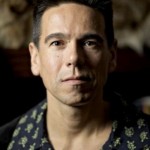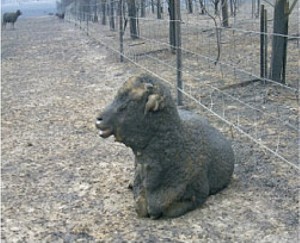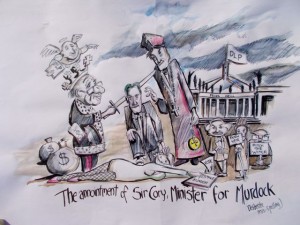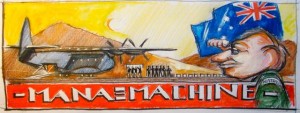Christmas and the New Year all done and dusted. Birthdays celebrated, and we have basked, baked, and bathed in the sure knowledge that our Government is doing the best for us, and don’t we all feel grateful? Never in my life has the world been so out of step with Australia, one can only hope they see the light and catch up. Maybe a new world-wide curriculum?
On my sister’s fridge was the following
See it
Want it
throw a tanti
Get it!
I’m not sure if this is a political slogan of great currency, or a Buddhist Chant
Well, our first week back and don’t we see Passive Complicity all about? In this weather that is not unexpected.
![]() The week commenced with Tarquin O’Flaherty continuing his series “Man as Machine”. He wrote of “The ‘Tory’ party (from the Gaelic; ‘toire’ to pursue, later; outlaw, lawbreaker, etc.) were always the henchmen, the cronies, the courtiers of the King.” and explained the origin of the Whigs. Read more here
The week commenced with Tarquin O’Flaherty continuing his series “Man as Machine”. He wrote of “The ‘Tory’ party (from the Gaelic; ‘toire’ to pursue, later; outlaw, lawbreaker, etc.) were always the henchmen, the cronies, the courtiers of the King.” and explained the origin of the Whigs. Read more here
Paddy o’Cearmada reported on another week in politics in which ‘Cory Bernardi, publishing his book The Conservative Revolution (wholeheartedly endorsed by Andrew Bolt) (in which) general thrust seems to be that heterosexual Christian families are the basis of a good society……’ here
‘Giving them oxygen’ was the title of Cecil Poole’s piece in which he argued for even more oxygen in order to get a more complete burn and allow a fresh start. (There is no known image of Cecil Poole – please help find one)
‘This is shameful conduct, and in any other western democracy would have been greeted with outrage.” wrote Tarquin O’Flaherty in reference to the arrest of five men holidaying in Queensland with their families. These men rode motor bikes and were members of a motorcycle club. That they were together seems to be the ‘crime’! more here
‘The Australian Education Minister (Pyne) says students should learn about Aboriginal history, but adds that the current curriculum has not sold the ‘benefits of western civilisations’. Tell that to Indigenous Australians’ says Paul Daley of The Guardian. It also seems Christopher Pyne is helping Australian Foreign Affairs Minister Julie Bishop in her efforts to repair relations with Indonesia by telling the world of the benefits of benefits of Western Civilisation. Read it here
“If colonisation was the intent to take land away, to impose foreign laws and to disrupt culture, if that would define colonisation in the year 1609 (then) it pretty much defines the relationship today.” Saturday’s MDFF is a transcript of Professor Taiaiake Alfred’s Naarm Oration given in Melbourne in late November 2014 Read the transcript here for a far better understanding the “Indigenous Problem” is in fact a “White Problem” (and why this blog exists.)
To lighten the week Poetry Sunday brought “A choice collection of brief trifles, including inscribed tombstones and other railleries complied by IRA MAINE, Poetry Editor”
Good reading, join the conversation.
Cheers
Cecil Poole







